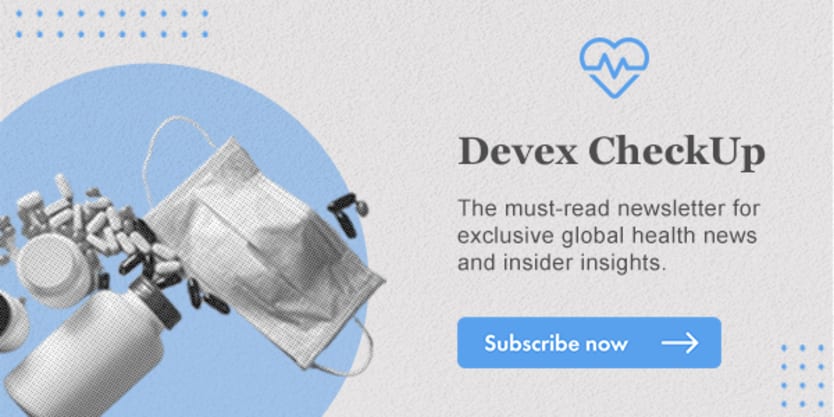
In 1998, I took a public health class and learned about the global goal to reach “an acceptable level of health for all the people of the world by the year 2000.” While we had only two years left, I could barely see signs of hope for better access to health care. I thought of a neighbor who had just died while giving birth at home, a death that could have been averted if she had access to a skilled health worker.
“If the goal of the global declaration is health for all by 2000, then it is a broken promise,” I cried out in class.
In September 2000, 189 United Nations member states confirmed another global declaration, the Millennium Development Goals, with a target to achieve all MDGs by 2015. Despite remarkable improvements in addressing global priorities such as HIV, malaria, maternal and child mortality, and gender inequality and poverty, MDGs that I had considered as renewed promises were not met.
The burden of diseases remained heavy and heavier in many low-income countries. At the end of 2017, 810 women were still dying every day from preventable causes related to pregnancy and childbirth, with low- and lower-middle-income countries bearing 94% of all maternal deaths.
The Sustainable Development Goals, aiming at achieving a better and more sustainable future for all by 2030, were agreed upon in 2015. Universal health coverage is an important target of the SDGs. However, the question remains: Can we achieve a better future before we reach a good, or at least a good enough, future?
Leadership and accountability are crucial to ensure universal access to health care.
—This question may sound pessimistic; however, an answer would help to formulate both aspirational and pragmatic targets. Should low- and middle-income countries revisit strategies and tactics to ensure access to high-quality health care? Absolutely, especially ahead of the World Health Summit later this year. This is how.
Reimagining health as a human right
While reimagining health as a human right is necessary, a proactive approach would make substantial improvements. Specifically, this requires intentional efforts to address five blind spots of health programming including: the lack or misrepresentation of local stakeholders at the global health decision-making table, a narrow definition of health workforce, the rigidity of modern medicine, unbalanced health financing, and global health governance and accountability.
Local representation in global decisions: Over the past two decades, engaging stakeholders has been effective in the implementation toward better health outcomes. However, involving local communities remains minimal, superficial, or informational. Oftentimes, local groups are informed of already designed programs. If health is a human right, local communities should have the right and a say on the design, implementation, and evaluation of health interventions.
Narrow definition of health workforce: Traditionally, the definition of health workers is often limited to physicians, nurses, pharmacists, and other paramedics. Formalizing community health workers should be a priority, especially in LMICs.
These cadres should be expanded to include teachers and faith leaders whose mission includes — or should include — the health and well-being of the communities they serve. As such, they should be trained, compensated, and provided with technical support and tools they need to become effective as front-line health workers.
In 2016, the “Global strategy on human resources for health: Workforce 2030” highlighted the need for 18 million health workers to ensure universal access to health care by 2030. Expanding the definition and building an extended cadre of public health workforce could help.
Rigidity of modern medicine: Traditional medicine remains largely practiced in LMICs, especially in sub-Saharan Africa. With modern medicine, traditional healers may be seen as a danger to the community. Yet many patients consult trusted traditional healers in their respective villages either before or after seeking care at health facilities. Thus, collaboration between traditional and modern healers should be a priority.
Unbalanced health financing: Major health financing institutions including the Global Fund to Fight AIDS, Tuberculosis and Malaria and Gavi, the Vaccine Alliance invest heavily in vertical programs such as HIV and malaria with little attention to strengthening comprehensive health systems.
Such an imbalance is often due to insufficient inputs from the local stakeholders, including front-line workers and end users. There is a need for locally designed measures such as resource advisory boards to guide health financing strategies. Further, new funding opportunities should be made available for community leaders to use innovative technology and social entrepreneurship to make a difference in their communities.
Global health governance and accountability: Leadership and accountability are crucial to ensure universal access to health care. In addition to driving the movement toward health as a human right, leaders translate sustainable solutions into policies and guidelines.
For the first time in history, the U.S. Senate confirmed someone born on the African continent, the Cameroonian virologist John Nkengasong, as the U.S. global AIDS coordinator. Likewise, global health agencies should embrace diversity by welcoming leaders from the global south, versed with the knowledge and experience that their countries need.
To be sure, extensive efforts have been deployed in elevating health as a human right through private and public partnership and evidence generation.
Organizations like Partners In Health and University of Global Health Equity have advocated for accompaniment — medical, social, and economic support provided by paid community health workers — as the essential strategy to deliver quality health care in low-income and hard-to-reach communities. Aspen Global Innovators Group launched the Community First Global Collaborative, just as global institutions and philanthropies continue to advocate for a paradigm shift.
However, the slow pace toward global health equity sends a mixed message questioning whether health is a human right or not. As we transition from pandemics and prepare for future natural and humanitarian crises, renewing our commitment to health as a human right should guide our new theory of change.









